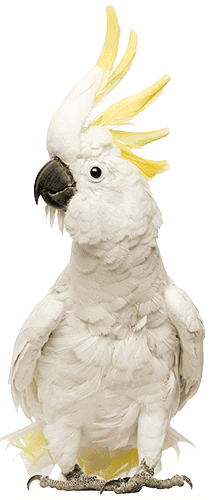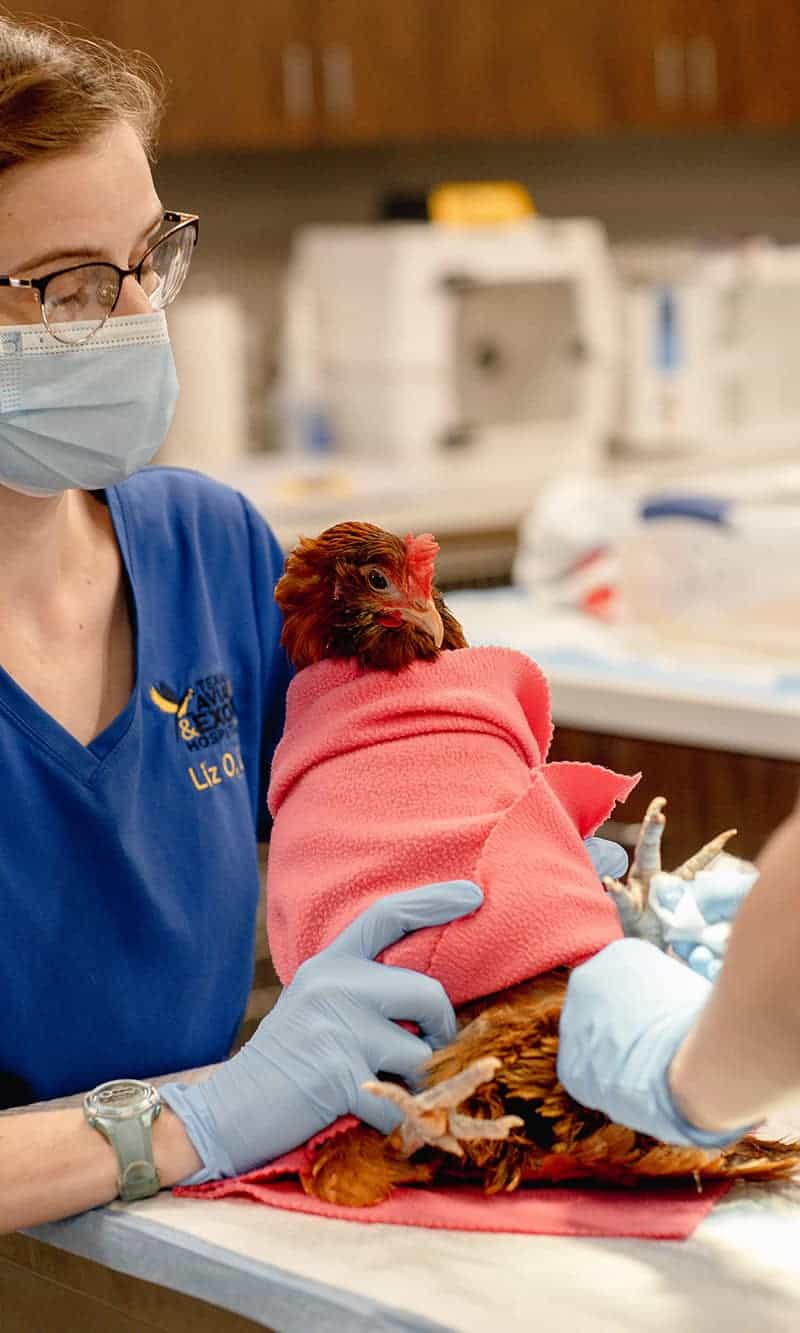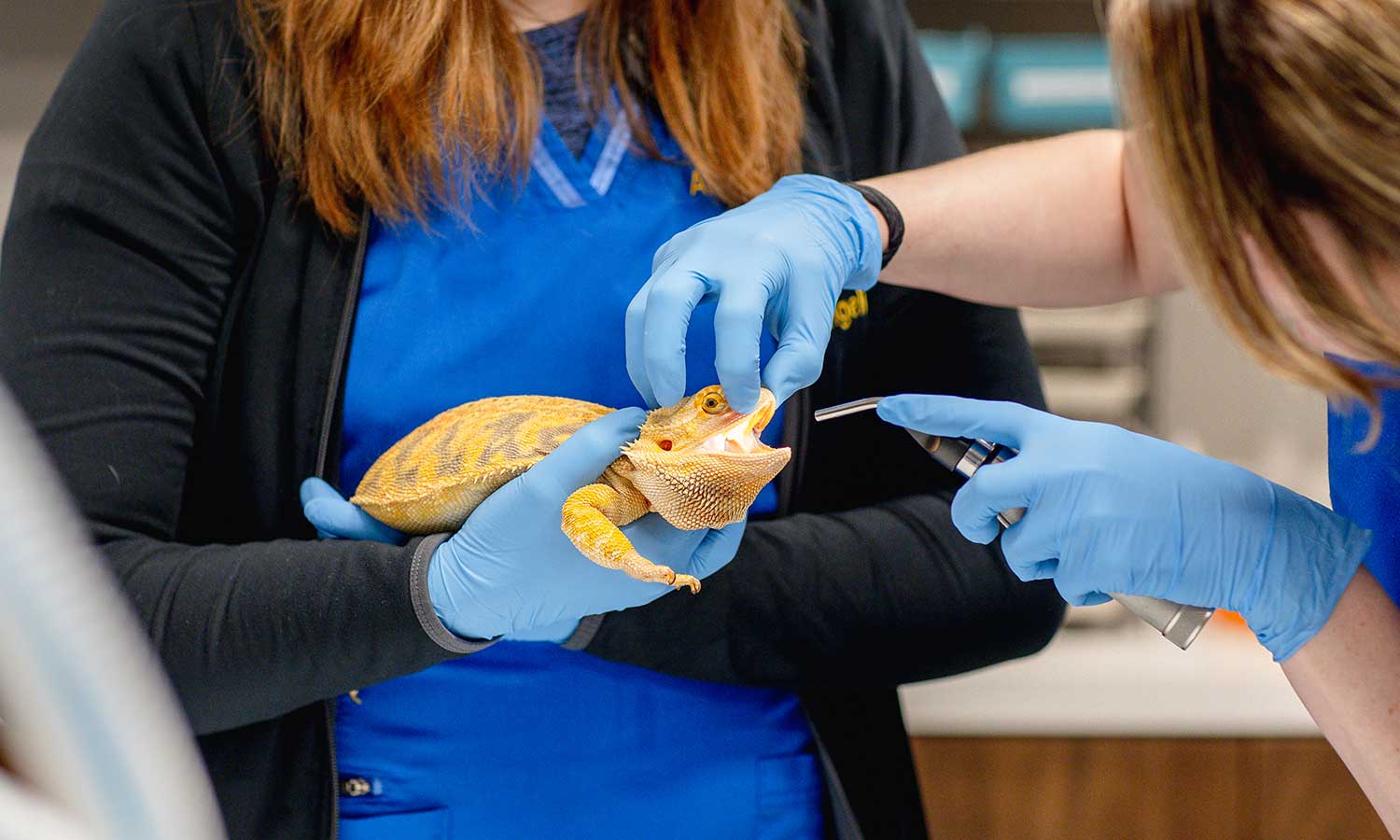With Better Understanding Comes Better Treatment

Diagnostic testing and imaging technology helps us look beyond the surface. Many exotic pets have conditions without obvious symptoms. Diagnostics allow us to evaluate your whole pet from the inside out, and give us a comprehensive understanding of their overall health. At Texas Avian & Exotic Hospital in Grapevine, we feature exotic-specific diagnostic and imaging capabilities to suit your unique pets.

Comprehensive Laboratory Services
Our in-house lab gives us a convenient, quick avenue to dive deeper into your pet’s health right on the spot, which is crucial to forming the most effective treatment plan. There are also a number of laboratories across the country that we utilize when further testing or specific types of tests are needed for more information. We can perform a range of tests for both preventive screening and diagnosis of diseases.
Common tests we perform include:- CBC (complete blood count)
- Blood chemistry panels (evaluate organ function)
- Protein electrophoresis (EPH)
- Disease screening (specific for each species)—including PCR for Psittacosis, Avian Bornavirus, and Psittacine Beak and Feather Disease testing for birds
- Fecal exams (to check for parasites)
- And more
Routine blood work is often done at your pet’s annual wellness exam. If we know what your pet’s bloodwork looks like when they are healthy, we are better able to more accurately notice and treat any deviations in health.

Imaging Technology
Being able to see your pet’s internal organ and skeletal system is a valuable ability. With digital X-ray, CT scans, and ultrasound, we can create a detailed picture of body cavities, organs, skeletal structure, and more. These tools, when used appropriately alone or in combination, can provide invaluable information that aids tremendously in developing the proper diagnosis, and thereby an effective treatment plan for your pet.
Digital X-Ray
Digital X-ray is far superior to its old film predecessor. It emits less radiation, produces images faster, and is much more detailed. We typically use X-rays to diagnose dental problems, pneumonia, kidney and bladder stones, foreign bodies, fractures (breaks to the bone) and other traumatic injuries, as well as a long list of less common reasons. X-ray is incredibly useful in so many circumstances as it helps us not only diagnose certain ailments, but also is excellent in ruling out possibilities, which allows us to zero in on the proper diagnosis.
Ultrasound
While both X-ray and CT scans use radiography to produce detailed images, ultrasound relies on sound waves. Ultrasonic sound waves are emitted through the ultrasound device and bounce off the internal walls of your pet’s body to recreate a live image of organs, tissue, and cavities. Ultrasound is particularly useful in evaluating organ structure and identifying any abnormalities such as abnormal texture, tumors, or cysts. It also is invaluable in reproductive evaluations for mammals and reptiles alike.
CT Scan
A computerized tomography or CT scan combines a series of X-ray images, taken at different angles, into a full 3D image. It offers an even more detailed image than X-rays alone. CT scans help us identify tumor locations and growth rates, evaluate diseased organs, and better understand the extent of damage from traumatic injuries. It also helps us in rabbit dentistry cases and aids in diagnosing avian heart disease (atherosclerosis), among many other uses.
Endoscopy
Veterinary endoscopy is a minimally invasive technique which allows us to look inside an animal’s body using specialized video cameras. This technique allows us to view full color images inside a pet without the need for large incisions. At Texas Avian & Exotic Hospital we use both rigid endoscopy (actually a very thin, semi-flexible instrument) and flexible endoscopy (a very long flexible instrument).

Reptile and Avian Sexing
Wondering if your pet is a he or she? We can help you out. Reptiles and birds are notoriously difficult when it comes to identifying their gender. Through testing, we can confirm your pet’s gender so you can better understand their health needs, their breeding potential, and know if their name suits them!
Diagnostics and imaging are essential to our exotic veterinary practice. If you’re interested in learning more about how we can help your pet, please contact us today to set up an appointment!

